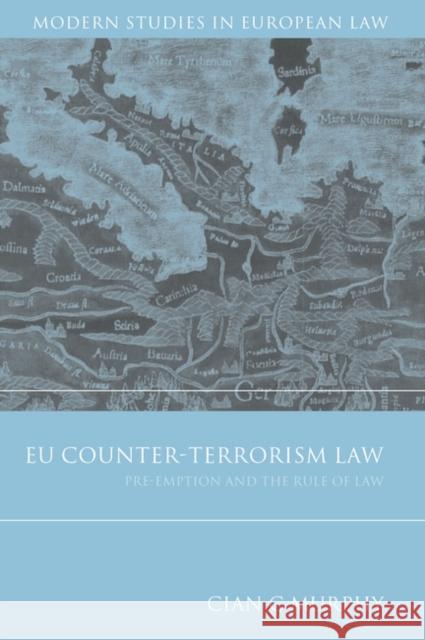EU Counter-Terrorism Law : Pre-Emption and the Rule of Law » książka
EU Counter-Terrorism Law : Pre-Emption and the Rule of Law
ISBN-13: 9781849461351 / Angielski / Twarda / 2012 / 274 str.
This is a detailed study of the EU's action to combat terrorism since September 11, 2001, and the implications that action has had for the EU legal order. It critically examines EU counter-terrorism measures to ascertain how rule-of-law principles have been affected in the war on terrorism. The book opens with a critical examination of the rule of law in the EU legal order. It then provides an overview of the war on terrorism before analyzing five key facets of EU counter-terrorism: the common European definition of terrorism, along with related offenses contained in the Framework Decision on Combating Terrorism * the EU's anti-money laundering and counter-terrorist finance laws * UN and EU targeted asset-freezing sanctions * the EU's data retention measures, such as the Data Retention Directive and the Passenger Name Records agreements * the European Arrest Warrant and European Evidence Warrant. The book argues that EU counter-terrorism is weakening the rule of law and bypassing safeguards in favor of a system emphasizing coercive control over individual autonomy. It concludes by examining the prospects for the future as the EU becomes a more powerful security actor following the Lisbon Treaty and the adoption of the Stockholm Program. (Series: Modern Studies in European Law - Vol. 31)











